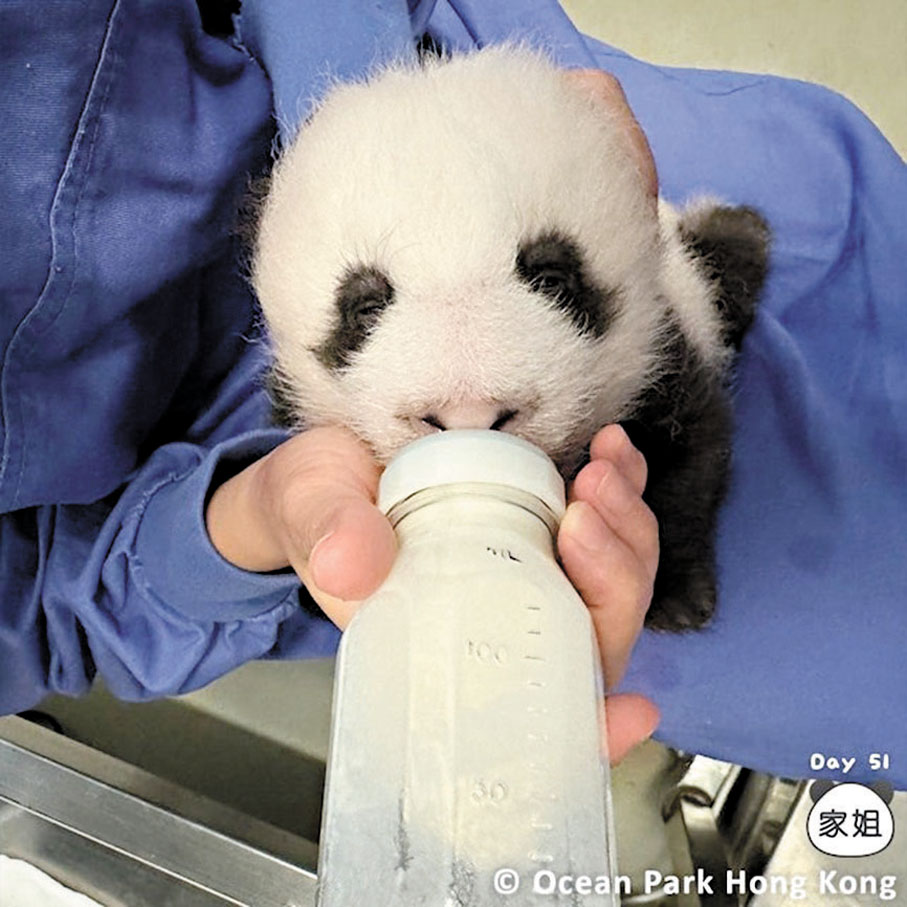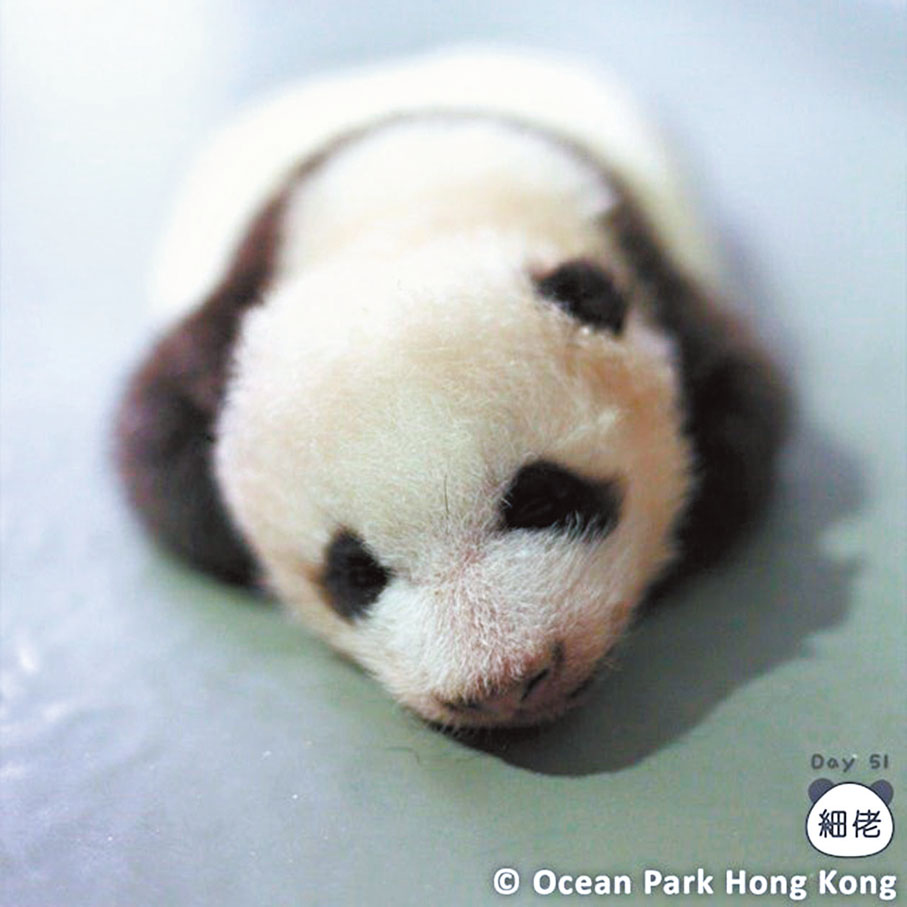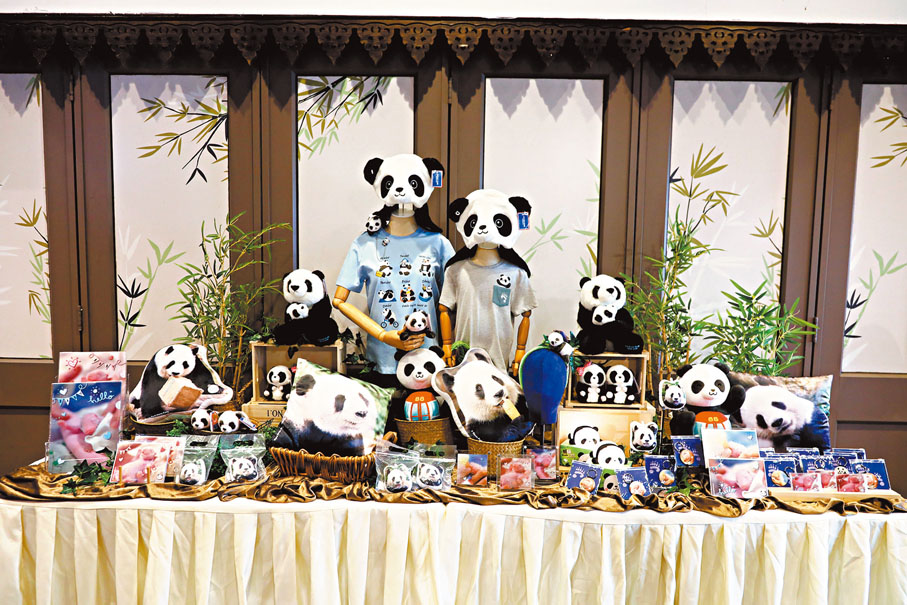【社評雙語道】加強自然科普教育以熊貓寶寶為契機



【原文】摘錄自9月14日香港《文匯報》:大熊貓「盈盈」誕下的龍鳳胎9月14日滿月,海洋公園送出815張禮卡與市民同慶。一個月以來,香港市民持續關注大熊貓寶寶的成長狀況,成為大家的共同牽掛。
熊貓是瀕危動物,也是中華文化的一個標記,香港首次有大熊貓出生,當然有必要藉此契機加強科普教育,讓大眾認識人和自然的關係,以及國家保育、繁殖熊貓的歷程,同時進一步發揮好海洋公園作為科普教育基地的角色。
剛滿月的大熊貓寶寶是第一對在香港出生的大熊貓,出生至今健康狀況良好,海洋公園順利通過照顧初生熊貓的考驗。事實上,海洋公園除了是主題樂園,也是一個自然保育和教育基地,獲四川省政府機關授予「四川省自然保育基地」的資格,又與香港中文大學合作,進行生態研究、保育工作和環保教育工作。
歷年來,海洋公園對海洋生物以及野生動物保護、研究,以及公眾教育作出重要貢獻。現在熊貓寶寶出生引起的熱潮是一個大好機遇,讓海洋公園可以在科普教育上發揮更大作用,在更廣領域中提升大眾愛護動物的意識。
大熊貓出生一個月以來,海洋公園定時發布牠們的成長片段,獲媒體廣泛報道,市民也廣為關注。海洋公園主席龐建貽透露,考慮將來透過直播讓市民直擊龍鳳胎成長。
過去香港有收費電視台設「熊貓台」頻道,現時YouTube等社交媒體也設有直播功能。如果海洋公園可以在條件可行下,在社交平台直播大態貓生活,同時對熊貓生活習性、心理變化作出介紹,相信可吸引各地觀眾關注,增加大家到訪海洋公園的意慾。
海洋公園又可仿效澳洲等地的動物園,在大熊貓住處附近設住宿設施,讓遊客日夜觀察大熊貓的起居作息,以生動方式令大眾特別是青少年與大自然互動共鳴。
中央向香港送贈大熊貓,讓市民通過親身與大熊貓見面,樹立人與大自然和諧共存的意識。同時關注到保護瀕危動物、促進生物多樣性,是地球可持續發展的關鍵。
事實上,除了大熊貓,全球還有許多瀕危物種值得人們關注,包括海洋公園有飼養的企鵝、娃娃魚等。海洋公園可以大熊貓寶寶作為起點,在更廣的範圍推行動物科普,提升大眾保護動物的意識,進一步發揮海洋公園在自然科普教育方面的作用。
Enhancing Natural Popular Science Education Through Baby Pandas
【譯文】The twin panda cubs born to giant panda Ying Ying turned one month old on 14 September, and Ocean Park distributed 815 gift cards to celebrate with the public. Over the past month, Hong Kong residents have been closely following the growth of the panda cubs which became a shared concern for everyone.
Pandas are endangered animals and a symbol of Chinese culture. As this is the first time that giant pandas have been born in Hong Kong, it is essential to seize this opportunity to strengthen popular science education, helping the public understand the relationship between humans and nature, as well as the country's efforts in panda conservation and breeding. At the same time, this enhances Ocean Park's role as a base for popular science education.
The panda cubs, who have just turned one month old, are the first pandas born in Hong Kong and have been in good health since birth. Ocean Park has successfully passed the test of caring for newborn pandas. In fact, Ocean Park is not only a theme park but also a base for nature conservation and education. It has been granted the qualification of "Sichuan Province Nature Conservation Base" by the Sichuan Provincial Government and has collaborated with the Chinese University of Hong Kong on ecological research, conservation work, and environmental education.
Over the years, Ocean Park has made significant contributions to the conservation, research, and public education of marine life and wildlife. The current excitement over the birth of the panda cubs is a great opportunity for Ocean Park to play a greater role in popular science education and to enhance public awareness of animal conservation in a broader context.
In the month since the birth of the giant pandas, Ocean Park has regularly released footage of their growth, which has been widely reported by the media and closely followed by the public. Ocean Park Chairman, Mr Paulo Pong, revealed that the Park would consider live streaming the growth of the twins in the future.
In the past, a pay-TV channel in Hong Kong had a "Panda Channel", and now social media such as YouTube also have live-streaming capabilities. If Ocean Park can live stream the pandas' lives on social media, introducing their living habits and psychological changes, it is believed that it would attract viewers from around the world and increase their interest in visiting Ocean Park.
Ocean Park could also follow the example of zoos in places like Australia by setting up accommodation facilities near the pandas' residence, allowing visitors to observe the pandas' routines day and night, thus engaging the public, especially youngsters, with nature in an interactive and resonant way.
The Central Government's gift of giant pandas to Hong Kong has enabled the residents to meet the pandas in person and develop a sense of harmony between people and nature. At the same time, it highlights that protecting endangered animals and promoting biodiversity are key to the sustainable development of the planet.
In fact, besides pandas, there are many other endangered species worldwide that deserve attention, including penguins and Chinese giant salamanders housed at Ocean Park. Ocean Park can use the panda cubs as a starting point to promote animal science education on a broader scale, raise public awareness of animal protection and further advance Ocean Park's role in natural science education.
● Tiffany
